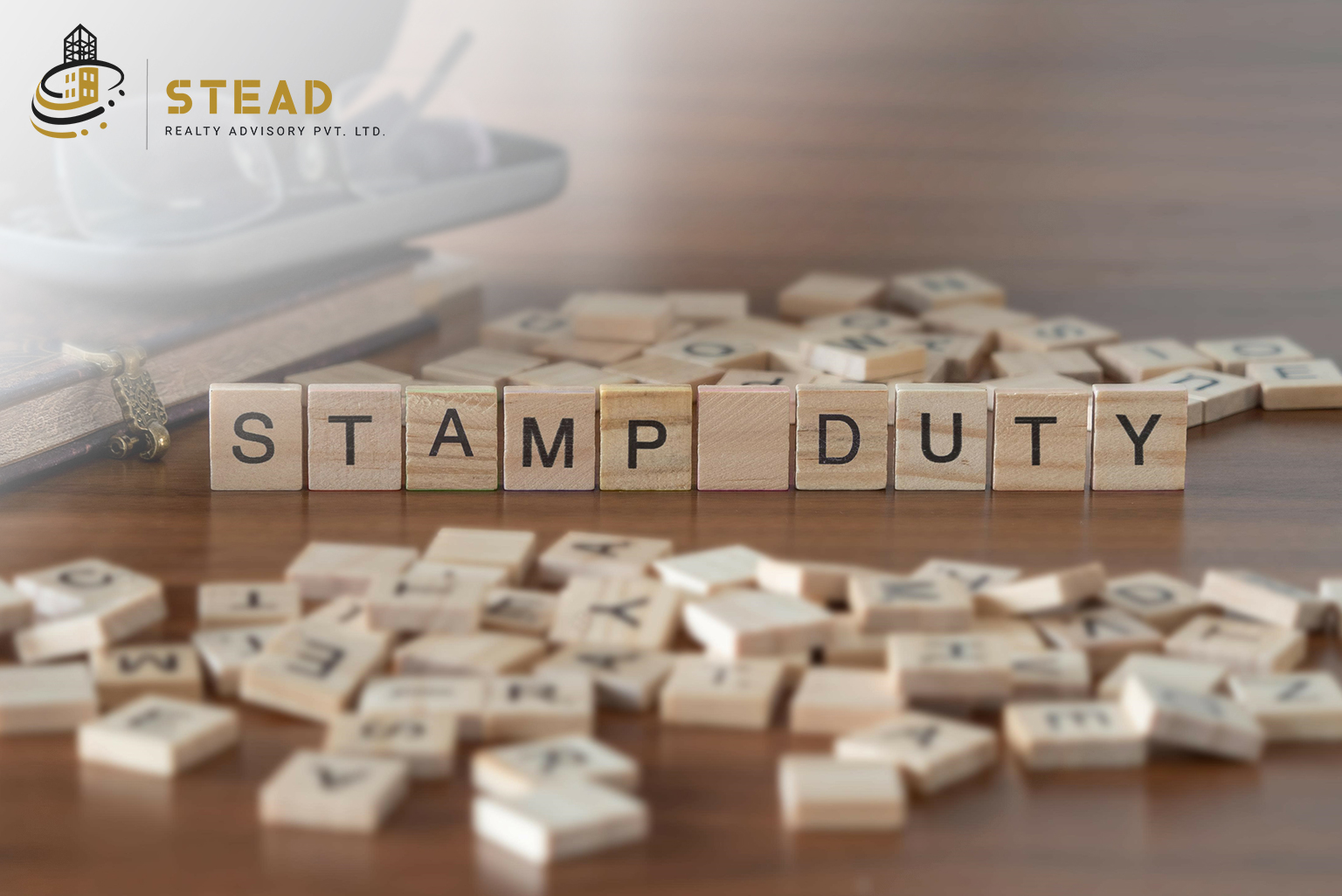How Important Is the Stamp Duty Act for Home Purchases?
Buying a home is one of life’s biggest financial milestones. Whether it’s your first home or an investment property, the process involves multiple legal and financial aspects. One of the key components of any real estate transaction is stamp duty for home purchase—a mandatory fee that every homebuyer needs to pay to register a property legally.
But what exactly is stamp duty, why is it important, and how does it impact your property purchase? In this blog, we will break it all down in a simple, easy-to-understand way, ensuring you’re well-informed before making your next real estate move.
What Is Stamp Duty for Home Purchase?
Stamp duty is a tax levied by the government when you buy a property. It serves as proof of ownership and is essential for legally registering the property in your name. The amount of stamp duty for home registration depends on multiple factors, such as property value, location, and buyer category (women homebuyers often get a discount).
It’s similar to getting a vehicle registered in your name—you wouldn’t own it officially until the paperwork is done. Similarly, without paying the stamp duty for property purchase, your home isn’t legally yours.
Why Is Stamp Duty Important?
Many homebuyers focus on the property price, loan, and interest rates but often overlook stamp duty. However, it plays a crucial role in the legal ownership of your home. Here’s why:
- Legal Ownership – Without paying the stamp duty for home registration, your ownership isn’t officially recognized by the government.
- Proof of Transaction – The stamp duty payment acts as legal proof that a transaction has taken place.
- Avoids Legal Disputes – In case of property disputes, a properly stamped and registered document serves as strong evidence in court.
- Resale & Transfer – If you ever plan to sell or transfer your home, a duly paid stamp duty ensures a hassle-free process.
Current Stamp Duty Rates in Mumbai
For those planning to buy property in India’s financial capital, it’s important to know the current stamp duty in Mumbai. Stamp duty rates in Mumbai are determined by the Maharashtra state government and can change periodically.
Rate of Stamp Duty on House Purchase in Mumbai (as of 2025)
| Buyer Type | Stamp Duty Rate in Mumbai |
| Male Buyer | 6% of property value |
| Female Buyer | 5% of property value |
| Joint Ownership (Male & Female) | 5% of property value |
- An additional 1% metro cess is also applicable in Mumbai, making the total stamp duty cost slightly higher.
- Stamp duty is calculated on the ready reckoner rate (government-assessed property value) or the transaction value, whichever is higher.
How to Pay Stamp Duty for Property Purchase?
There are multiple ways to pay stamp duty, depending on what’s most convenient for you:
1. Online Payment
With digitization, most states, including Maharashtra, allow online stamp duty payments through the government’s official portal. This is the easiest way to ensure a hassle-free process.
2. E-Stamping
E-stamping is an alternative to traditional stamp papers. The Stock Holding Corporation of India Limited (SHCIL) facilitates this method, making property registration easier and more secure.
3. Physical Stamp Paper
You can still opt for traditional stamp papers, although this method is being phased out in favor of digital solutions.
4. Franking
Banks and authorized institutions can “frank” (stamp) your documents, indicating that stamp duty has been paid. This is commonly used for large transactions.
Who Pays the Stamp Duty?
Stamp duty is typically paid by the buyer, unless otherwise agreed upon in the sale contract. Sellers are generally responsible for capital gains tax but not for stamp duty for home buyers.
In some cases, developers offer stamp duty waivers as festive discounts or promotional offers to attract buyers. If you’re purchasing a new property, check whether the builder is offering any stamp duty relief.
How to Save on Stamp Duty?
While stamp duty is mandatory, you can reduce your costs using these strategies:
1. Buy in a Woman’s Name
Many states offer lower stamp duty rates for women homebuyers. If possible, registering the property in a female family member’s name can save you 1-2% on stamp duty.
2. Invest in Under-Construction Properties
Some states have lower stamp duty rates for under-construction properties. Checking this beforehand can lead to significant savings.
3. Take Advantage of Government Rebates
State governments occasionally announce rebates or reduced stamp duty rates during festive seasons or economic downturns. Keeping an eye on these offers can be beneficial.
What Happens If You Don’t Pay Stamp Duty?
Failing to pay stamp duty has serious consequences:
- Your property transaction will not be legally recognized.
- You may face penalties of up to 200% of the unpaid stamp duty.
- Without proper documentation, reselling or transferring the property becomes difficult.
- Legal disputes can arise in the future regarding property ownership.
To avoid these complications, it’s best to ensure timely payment of stamp duty for property purchase.
Final Thoughts
Stamp duty is an unavoidable yet essential part of the home-buying process. While it may feel like an additional financial burden, it plays a crucial role in securing legal ownership of your property. Whether you’re buying in Mumbai or any other Indian city, understanding stamp duty for home purchase helps you make informed decisions and avoid unnecessary legal troubles.
FAQs
1. What is the current stamp duty in Mumbai for homebuyers?
As of 2025, the stamp duty rate in Mumbai is 6% for male buyers and 5% for female buyers, plus a 1% metro cess.
2. Is stamp duty different for new and resale properties?
No, stamp duty is applicable on both new and resale properties based on the transaction value or government-assessed value (whichever is higher).
3. Can stamp duty be included in a home loan?
Some banks allow stamp duty costs to be included in home loans, but this depends on the lender’s policy. It’s best to check with your bank.
4. Can I get a refund on stamp duty?
Yes, in case of transaction cancellation or overpayment, refunds are possible, but the process varies by state. In Maharashtra, you must apply within six months of the transaction.
5. Do first-time homebuyers get a discount on stamp duty?
Certain state governments offer concessions for first-time homebuyers, but this varies. It’s advisable to check with the local registration office.
6. What happens if I delay stamp duty payment?
A penalty of up to 200% of the unpaid amount can be levied if stamp duty is not paid on time. It’s best to settle it immediately after property registration.
7. Can stamp duty be negotiated?
No, stamp duty is a government-mandated tax and is non-negotiable. However, you can explore legal ways to reduce your liability, such as registering under a female co-owner or availing state incentives.
Stamp duty may not be the most exciting part of home-buying, but it is one of the most crucial. Understanding how it works ensures a smooth and hassle-free property registration process, protecting your investment in the long run.







